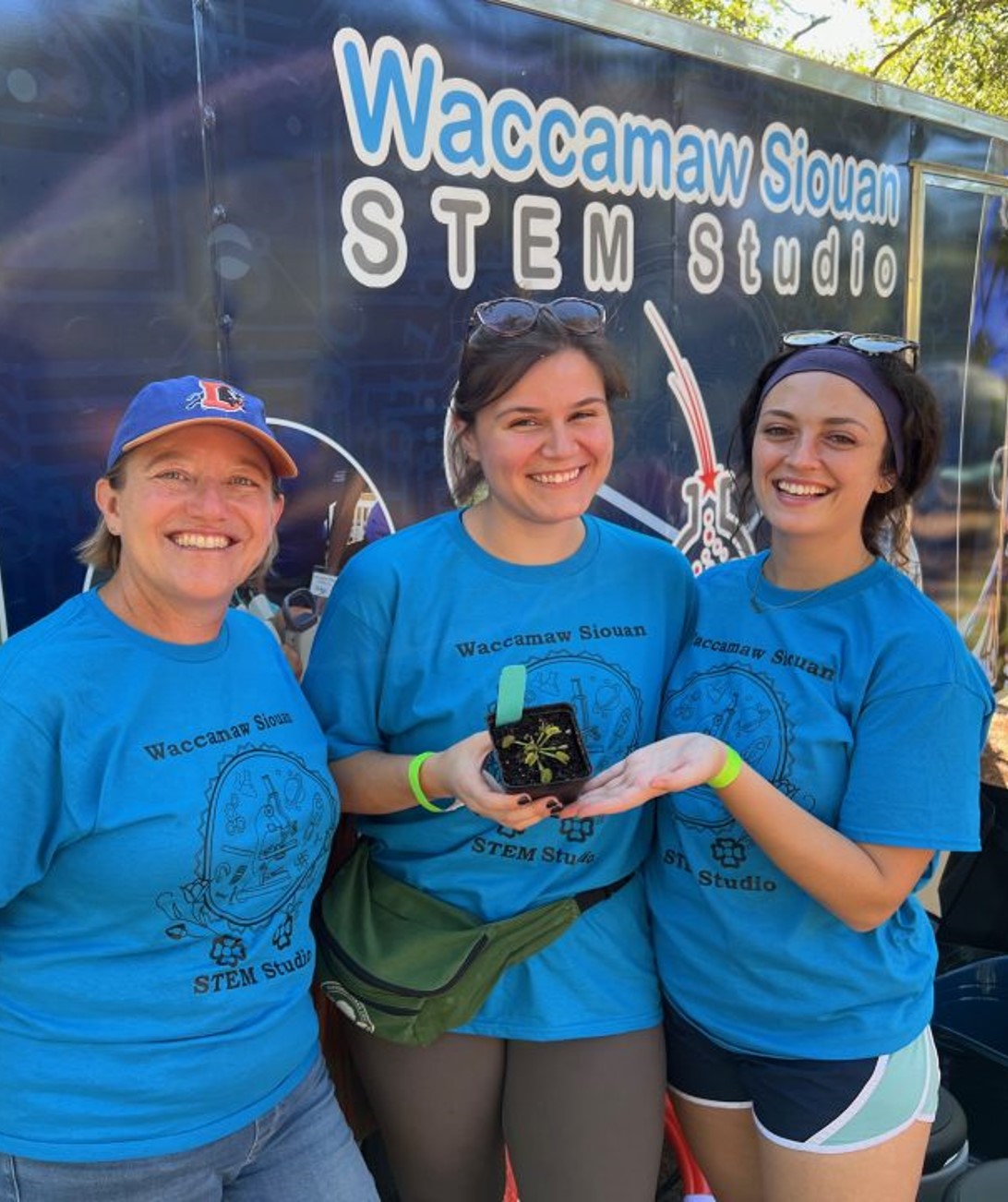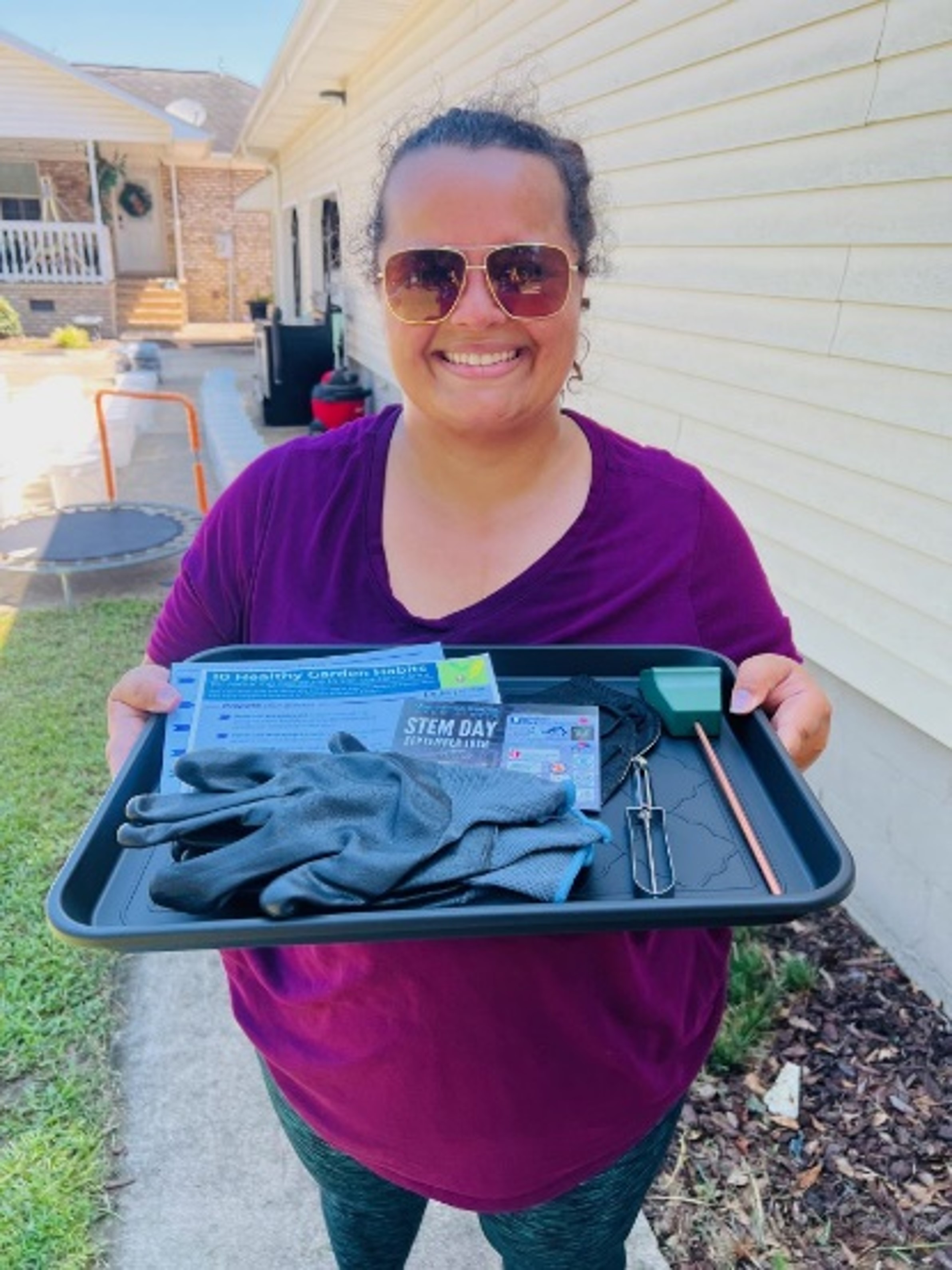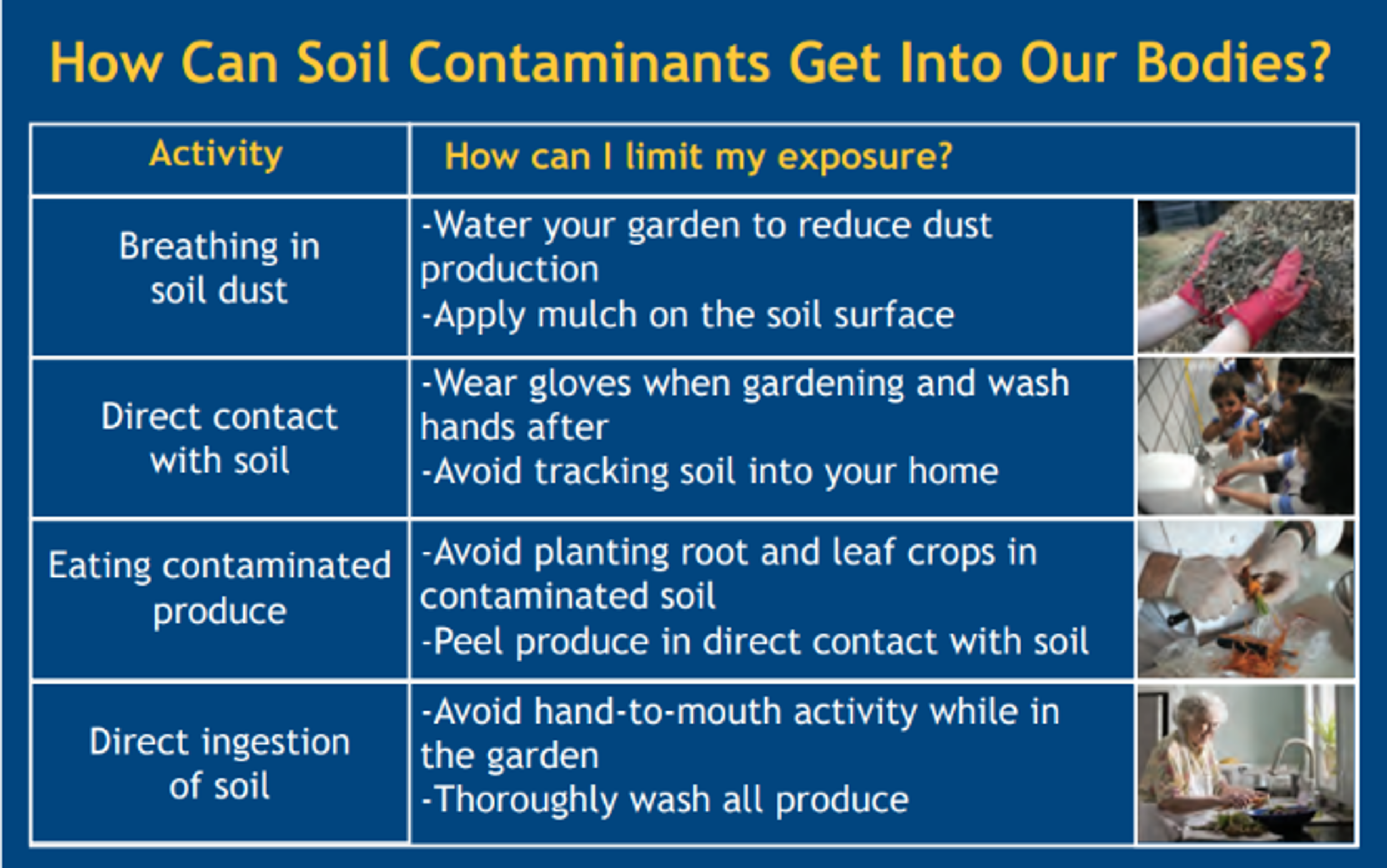Superfund Research Program
April 2024
By Isaac Conrad

Researchers at the NIEHS-funded Duke University Superfund Research Program (SRP) Center are using outreach and community-engaged research to help North Carolina residents identify, understand, and manage risks related to soil contamination. Center staff also develop a variety of tools to help residents identify contaminant sources near their gardens.
“Contaminants like heavy metals and PFAS are widespread and long-lasting in North Carolina soils,” said Chiara Klein, program coordinator for the Duke SRP Center Community Engagement Core (CEC). “People can be exposed through gardening and recreation, which could have adverse health outcomes.”
Community Science with the Waccamaw Siouan Tribe

Through a partnership with the Waccamaw Siouan Tribe, Duke SRP researchers support residents in testing their soil and provide resources and tools to prevent contaminant exposure. The Waccamaw Siouan Tribe has relied heavily on gardening for food, but residents became concerned when a project they co-led with researchers from the University of North Carolina at Wilmington detected PFAS in the soil around their homes. They reached out to the Duke SRP Center CEC to interpret the health implications of the results.
The CEC developed soil contaminant reduction kits in response to community concerns, which include garden buckets, gloves, pH meters, vegetable peelers, fact sheets, and other supplies to help Tribal gardeners limit their exposure to PFAS. Over 60 kits were distributed by center staff and trusted members of the Tribe to individual families during an annual event held by the Waccamaw Siouan STEM Studio, the Tribe’s science, technology, engineering, and math education and outreach group.
“Working with any community requires an understanding of the context and history of how they have been approached by researchers in the past, as well as investing time to build authentic relationships and cultivate trust,” said Klein as she reflected on working with the Tribe. “These tenants hold true for our work with the Waccamaw Siouan Tribe and are a foundational part of how we approach all our work with communities.”
Responsible Gardening Resources

Many communities throughout North Carolina are affected by contaminated soil. The Duke SRP Center CEC created a website to provide resources, including soil contaminant fact sheets and the “Gardening Safely” video series, that help protect gardeners from harmful exposures.
In collaboration with North Carolina State University’s Cooperative Extension, the Duke SRP team launched Check Your Dirt NC, a resource for gardeners to check before preparing their gardens for the season.
“The tool guides users through a series of questions about their gardening practices, revealing real-time feedback and a final report on chemical contaminant sources, potential health impacts, and tips for exposure reduction,” Klein explained.
Since its publication in 2021, the Check Your Dirt NC tool has generated nearly 600 responses across 61 North Carolina counties. The team hopes this tool will continue to advance its mission of promoting safe gardening habits.


